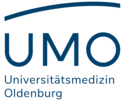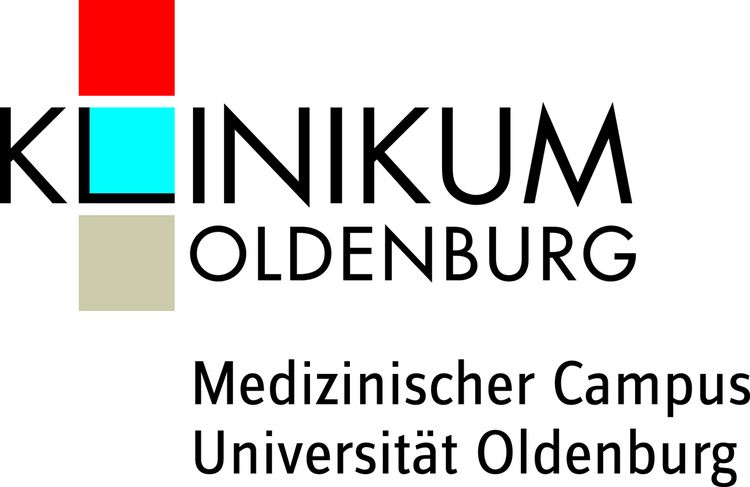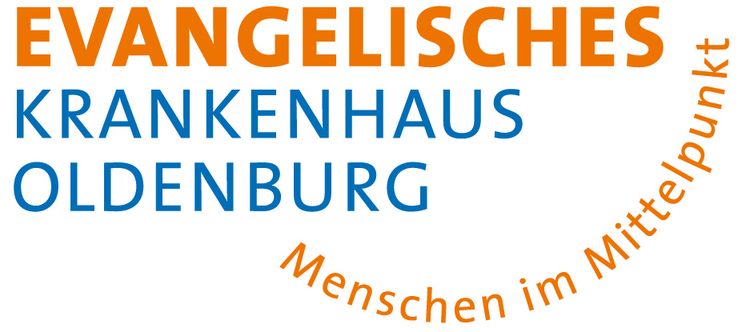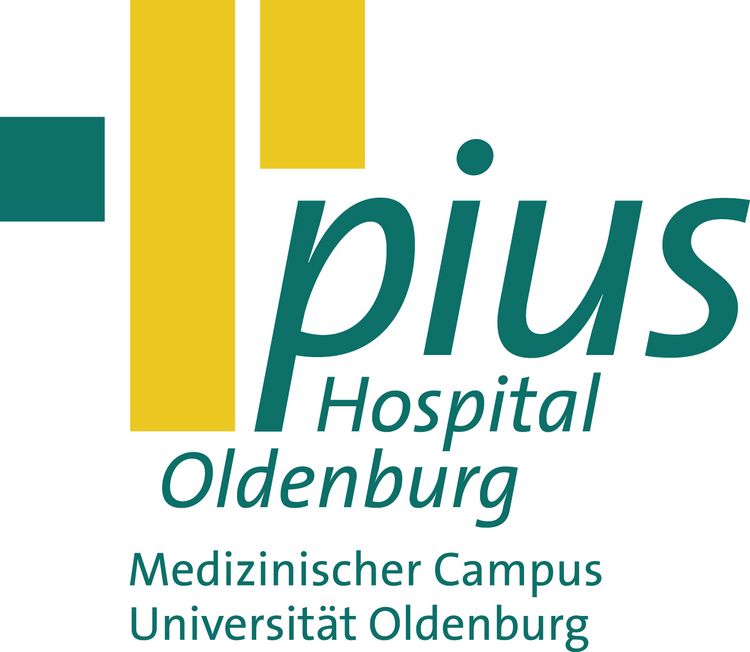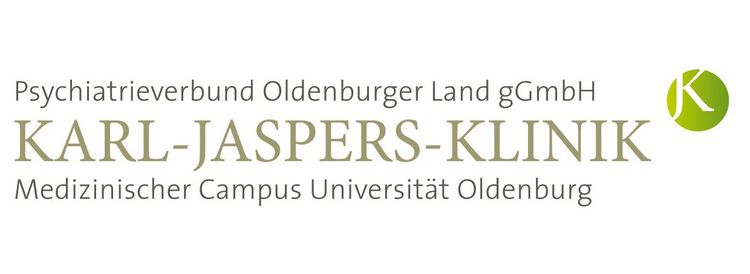Postdoctoral programmes at Universitätsmedizin Oldenburg
Would you like more time for your research? Would you like to have a boost for your habilitation? Then we have the right funding programmes for you! Faculty VI supports physicians interested in science with the Junior Clinician Scientist and Clinician Scientist funding programmes, which enable the combination of protected research time with specialized training. The Medical Scientist programme is suitable for scientists with a doctorate in the field of medical research who are working on their habilitation.
Junior Clinician Scientist Clinician Scientist Medical Scientist
Junior Clinician Scientist programme
Physicians with a doctorate and a licence to practise medicine who are in the early phase of their specialist training (usually 1st-3rd year) at an Oldenburg university hospital can apply for our Junior Clinician Scientist programme.
The School VI sponsors three Junior Clinician Scientists each year.
The duration of the programme is 12 months and the sponsored persons devote 20 percent of their working time to research. The participation in an individually tailored accompanying curriculum is optional. Intensive mentoring is provided.
The research time can be flexibly split and is remunerated according to TV-Ä. In addition, the applicants will receive 2,000 euros material funding.
Applicants should prove their scientific aptitude by completing their doctorate with at least "magna cum laude" or a corresponding equivalent. For the duration of the programme, an employment contract with the host hospital and a supervision agreement with two mentors must be in place. One of the two mentors must come from a clinical discipline, a second mentor must come from a medical-theoretical discipline. One of the two mentors must have a habilitation and be a member of School VI. The mentoring agreement also contains the agreement on the division of protected research time and is also signed by the head of the clinic.
If the doctorate has not yet been fully completed or if the licence to practise medicine and the employment contract with a clinic have not yet been signed by the end of the application period, please contact the programme coordinator.
Read here which elements are part of our Junior Clinician Scientist programme.
Clinician Scientist programme
Licensed physicians with a doctorate who have already progressed further in their specialist training (usually from year 4) and specialists who would like to habilitate can apply for our 36-month Clinician Scientist Programme.
Faculty VI sponsors one clinician scientist per year.
Clinician Scientists devote 49 percent of their working time to research. Those who receive funding take part in a customised accompanying curriculum in order to optimally further their professional and interdisciplinary qualifications and to network. Intensive mentoring is provided.
The research hours are remunerated according to TV-Ä. In addition, the clinician scientist receives 10,000 euros material funding per year. The material funds may also be used for external further training courses, which can be credited to the accompanying curriculum.
The goal of the Clinician Scientist Programme is successful habilitation. In addition, specialist training should be completed at the of the funding period, if applicable.
Candidates can prove their scientific aptitude by completing their doctorate with at least "magna cum laude" or a corresponding equivalent. In addition, if possible, half of the publication output required to obtain the habilitation (according to the habilitation regulations) should have been achieved.
For the duration of the programme, an employment contract with the host hospital and a supervision agreement with two mentors must be in place. One of the two mentors must come from a clinical discipline, a second mentor must come from a medical-theoretical discipline. One of the two mentors must have a habilitation and be a member of Faculty VI. The mentoring agreement also contains the agreement on the distribution of the protected research time and is also signed by the clinic management and the clinic director.
Read here which elements are part of the Clinician Scientist Programme.
Medical Scientist programme
The Medical Scientist programme is aimed at scientists working in medical research with at least three years of post-doctoral experience on the way to habilitation.
Faculty VI sponsors one Medical Scientist per year.
Grantees take part in a tailor-made accompanying curriculum in order to optimally develop their professional and interdisciplinary qualifications and to network.
Intensive mentoring is provided. The funded students receive personnel funds for 36 months in the amount of a 65 percent TV-L13 position for a doctoral student within the framework of a structured doctorate and material funding in the amount of 10,000 euros per year.
Applicants can prove their scientific aptitude by completing their doctorate with at least "magna cum laude" or a corresponding equivalent. In addition, if possible, half of the publication output required to obtain the habilitation (according to the habilitation regulations) should have been achieved. A position as a research assistant must already exist or funds must have been raised for this purpose, as the position is not financed by the programme.
A supervision agreement with two mentors should be in place for the duration of the programme. One of the two mentors must come from a clinical discipline, a second mentor must come from a medical-theoretical discipline. One of the two mentors must have a habilitation and be a member of Faculty VI.
Read here which elements are part of the Medical Scientist programme.
Accompanying curriculum
The core element of the Clinician Scientist and Medical Scientist programmes is a tailor-made accompanying curriculum that offers optimal further training in the areas of scientific and medical competences as well as key qualifications and career development.
An individual plan of the accompanying curriculum is already to be submitted with the application documents. The plan is also part of the supervision agreement for the funding period. Deviations from the plan are possible and must be discussed with the mentors within the framework of the recorded progress reports and communicated to the academic programme coordination for approval.
Credit may be given for courses already attended no more than three years before the start of the programme.
For junior clinician scientists, the accompanying curriculum is optional.
We have compiled numerous courses and workshops for you in our calendar of events (please select the Clinician and Medical Scientist Programme filter).
In the fold-out elements you will find further offers of the Graduate Academy, the Graduate School OLTECH and the University Didactics.
What courses are available?
Courses offered by the graduate school OLTECH
The courses offered by OLTECH cover the three areas of broadening and deepening specialist knowledge, communication and knowledge transfer, and interdisciplinary skills.
Courses offered by Graduate Academy
The Graduate Academy offers courses and workshops on the following topics:
Career planning and development
Management and leadership skills
Courses offered by Graduate School of Medical Sciences RUG Groningen
Due to the cooperation with RUG/UMCG in in the Netherlands within the framework of European Medical School (EMS) courses offered by Graduate School of Medical Sciences (GSMS) can be attended as well.

Course offerings Didactics
Medical Didactics offers a comprehensive range of courses for lecturers of Fk.VI. Advice can be obtained from Thomas Schmidt .
The team of Teaching and Learning in Higher Education offers further qualification courses for lectureres. The courses offered can be found here.
For clinician scientists: further training courses offered by the clinics, the LÄK/BÄK and the medical societies
For clinician scientists, it is recommended to take courses in the field of continuing medical education that are closely thematically related to the content of specialist training. This can be beneficial to the crediting period of the programme to the duration of the specialist training.
Courses required by the WBO in Section B for certain specialist training cannot be credited (e.g. course training in basic psychosomatic care for the specialist in gynaecology, general medicine or paediatrics and adolescent medicine).
For this purpose, please use the offers of the Oldenburg clinics and offers provided by the BÄK and LÄK Lower Saxony:
Websites of the medical societies
Further external training offers
External continuing education courses can also be used to complete the accompanying curriculum. The courses must be approved in advance by the academic programme coordination of the faculty. Please contact them in good time to ensure that they can be credited. Funding for external courses must be provided by the material resources made available to you or by your clinic.
Application and downloads
In the Guide for Applicants, you will find an overview of all documents required for the application. It is advisable to make an appointment with the scientific programme coordinator in advance.
The procedure for selecting funding recipients is a two-stage process. The submitted applications will be evaluated by reviewers from the Faculty of Medicine and Health Sciences, including evaluation reports and a short presentation by those applicants who reach the second selection round.
Applications are possible from 01 November 2022 until 28 February 2023. The programmes will start in October 2023.
Please consider the following two general and the programme-specific documents in the fold-out elements for your application.
Application documents for Junior Clinician Scientists
Application documents for Clinician Scientists
Application documents for Medical Scientists
Forms for grantees
Ongoing and completed projects of our grantees
The functional role of PTPRσ for the motile function of cardiac fibroblasts and its utility as a therapeutic target for adverse myocardial remodelling (Dr. med. Lisa Hasselbach, Clinician Scientist)
- Project description: Cardiovascular diseases (CVDs) have high morbidity and mortality. CVDs frequently funnel into heart failure (HF), characterised by reduced cardiac function due to myocardial remodeling. Myocardial remodelling requires cellular motility for recruitment of leukocytes and myofibroblasts as well as rearrangement of cardiomyocytes. Therefore, regulating these processes may open new avenues for therapeutic intervention in HF patients. PTPR is a receptor tyrosine phosphatase of the leukocyte-associated receptor (LAR) family coupling to the cytoskeleton and contributing to outside-in signalling in migrating cells in the brain. Heparan and chondroitin sulphate proteoglycans (HSPGs and CSPGs, respectively) are extracellular ligands, while EGFR, N-cadherin and β-catenin are phosphatase substrates of PTPR and involved in cell motility by regulating cytoskeletal function. PTPR binding of CSPGs favors cell arrest, while HSPGs induce cell migration. PTPR is thus a key regulator of cns cellular motility. The role of PTPR in the cardiovascular system is unknown. Our own data demonstrate that PTPR is upregulated in diseased myocardium, and its expression is localized to fibroblast-cardiomyocyte junctions. We hypothesize that PTPRσ regulates molecular motors in cardiac fibroblasts by cytoskeletal rearrangement of cell-cell contacts and thereby cell motility in healing myocardium. Signal transduction pathways (i. e. transcription factors and kinase systems) involved, linking PTPR to cardiac fibroblast motility will be examined utilizing primary murine cardiac fibroblasts and siRNA technology in functional assays. Readouts are qRT-PCR, immunoblot and -stainings. PTPRσ ligands HSPGs' and CPSGs' role in cardiac fibroblast motility will be assessed. Our results will provide (i) new mechanistic insights into the pathophysiology of PTPR signalling in the myocardium, (ii) a novel therapeutic target for HF, and (iii) a clear future funding perspective for follow-up research.
- Project duration: 2019-2022
Alleviating Motor Symptoms in Parkinson's Disease with Functional Near Infrared Spectros- copy Guided Motor Imagery Training (Dr. Cornelia Kranczioch, Medical Scientist)
- Project description: Parkinson's disease (PD) is the second most common neurodegenerative disease. It is treated pharmacologically or through deep-brain stimulation (DBS), but not all motor symptoms re- spond equally well and side effects are common. For these reasons, there is a clear demand for the development of alternative, non-pharmacological interventions. One promising ap- proach for a non-pharmacological add-on therapy is the use of real-time functional magnetic resonance imaging (rt-fMRI) neurofeedback (NFB), where patients undergo several NFB ses- sions in which they perform motor imagery (MI) and receive feedback on the activation of a target region of the motor network, the supplementary motor area (SMA). The basic idea of this rt-fMRI guided MI is that learning to self-regulate SMA through the combination of MI and NFB should result in lasting changes in the motor circuits and should lead to improved motor performance. However, the rt-fMRI NF approach comes with a number of difficulties, ranging from high costs to a considerable number of exclusion criteria. A suitable alternative can be functional Near Infrared Spectroscopy (fNIRS), a method conceptually similar to fMRI. This project aims to develop a paradigm suitable for an fNIRS guided MI training for alleviating motor symptoms in PD. This will be achieved in three work packages (WP). In WP1 it will be established that we can reliably measure SMA activation with fNIRS. Aim of WP2 is the development of an fNIRS MI NFB protocol that allows learning to self-regulate SMA activa- tion and validation of the protocol in a group of older healthy volunteers. In WP3 a small proof-of-concept study will be conducted in which patients with PD undergo an MI training with and without fNIRS-based neurofeedback and with extensive pre- and post-training assessments. We expect that the project will result in at least three joined peer-reviewed publications, which will form the basis for an external grant application.
- Project duration: 2018-2021
- Website of the junior research group: uol.de/psychologie/neurokfn
LogoAPP - Development of an app to support speech therapy after thyroid surgery (Dr. rer. nat. Verena Uslar, Medical Scientist)
- Project description: In the context of this study, which is planned as a feasibility study, an app for tablets and smartphones is to be developed to support outpatient speech therapy. The aim of the app is to enable patients to easily perform speech exercises. In the app, a selection of different exercises is presented, which is chosen by a speech therapist for the patient based on his or her individual situation. The app is to be developed in such a way that it can be used without instructions and without IT knowledge and can be carried out without accompaniment. The provision of such an app is seen as having a high potential for increasing the success of the therapy while at the same time reducing the workload of the hospital, provided that the app is accepted by the users. The success of this app is to be investigated in the course of the proposed project with a test battery of questionnaires and objective tests, which is also to be developed. In this pilot study, the focus is initially on the usage behaviour and the usability of the app in the form of acceptance by the patients. Data are to be collected for the preparation of the study procedure and the case number planning of a follow-up study, which is to be financed by third-party funds after the end of the project applied for here. This should make it possible to answer the following questions: A) Does thyroid surgery affect the voice quality of those affected despite inconspicuous vocal cord function and how long does postoperative impairment last? B) Does app-assisted voice therapy in addition to speech therapy alone improve voice quality in the presence of postoperative restriction of vocal cord mobility? C) In the case of improvement after B, is an app accepted by patients and used consistently? D) Does the provision of such an app additionally lead to an alleviation of the effort of inpatient care by a physician?
- Project duration: 2018-2020
Increasing the physical activity of patients with craniopharyngeoma of childhood and adolescence (Dr. rer. nat. Jalenur Özyurt, Medical Scientist)
- Project description: Patients with craniopharyngeoma of childhood and adolescence often suffer from a variety of autonomic and endocrine deficits as well as cognitive and social-emotional disorders. More than half of the patients develop hypothalamic obesity, which is not only associated with considerable impairments in various areas of life, but also with sometimes life-threatening secondary diseases.The aim of the present randomised controlled trial is to test whether i) a structured intervention to increase physical activity in daily life is well accepted and successfully implemented by patients, ii) such an intervention to increase activity leads to a significant improvement in body mass index (BMI) compared to a control intervention (daily stretching exercises as instructed) and whether iii) the increase in activity is a significant predictor of changes in BMI as well as other relevant parameters (e.g. fatigue, oxytocin). For this purpose, patients will be randomly assigned to two study arms. Patients in arm 1 are to try to increase their physical activity in everyday life in a 12-week intervention to increase activity with the help of an activity monitor and targeted instructions. Patients in arm 2 will first participate in a 12-week control intervention, followed by the 12-week physical activity enhancement intervention. In view of the health consequences of obesity as well as its unfavourable consequences for the quality of life of those affected, the targeted physical activity enhancement is of high clinical relevance. Due to hormonal deficits, motivational losses and health restrictions, regular weight loss programmes are very difficult to implement in these patients. By means of a form of activity increase that can be easily integrated into everyday life, we hope to be able to achieve initial successes with regard to a reduction in BMI and an increase in quality of life. The planned study can also provide valuable insights into the feasibility and design of further interventions in the context of oncological rehabilitation.
- Project duration: 2018-2020
"Nutrition and mobility e-coach" - Development and testing of a technical assistance system with individual, age-adapted feedback for sustainable improvement of the nutritional situation and physical functionality in high-risk geriatric rehabilitation patients (Dr. Rebecca Diekmann, Medical Scientist)
- Project description: Background Patients in geriatric rehabilitation are at high risk of malnutrition. A large proportion of them already suffer significant weight loss prior to their stay in rehabilitation, which in combination with immobile phases, e.g. due to acute illnesses, often results in a pathological loss of muscle mass and strength and the risk of physical dependence. Standard therapy in geriatric rehabilitation includes individualised physical training and nutritional counselling for patients in need or at risk. The scope of counselling is restricted, adequate coordination with physical training is not considered and the implementation of nutrition counselling is not standardised. Hypotheses A technical assistance system with adequate, age-adapted feedback oriented to the phases of the Transtheoretical Model of Behaviour Change can be applied to seniors in geriatric rehabilitation with a need for nutritional counselling in the area of nutritional status and physical activity. Method/work programme In three sub-projects, the readiness of geriatric rehabilitation patients to use technology is determined, the user-friendliness of an assistance system for recording the nutritional situation and activity with integrated adequate, age-adapted feedback, which is gradually introduced with the help of the input of a dietician, is tested, and finally the user-friendliness of the fully/partially automated assistance system is tested in geriatric rehabilitation patients. Perspective of results An assistance system effectively supports senior citizens with regard to their nutritional status and their physical functionality. In the future, the data obtained will be used to design a subsequent randomised controlled trial in which the effectiveness of the e-coach on nutritional status and physical functionality, and possibly also the negative correlations with age-associated comorbidities such as cognitive impairments, depression and polypharmacy in geriatric rehabilitation patients, will be tested.
- Project duration: 2019-2022
- Project website: uol.de/medical-technology/research/projects/numob-e
Auditory workload during open and laproscopic surgery (Aabpolo)(Dr. Martin G. Bleichner, Medical Scientist)
- Project description: The workplace stress of medical staff is high and is increasingly discussed also in Germany, as it has a direct impact on the quality of patient care and patient safety. Common stressors are long working hours combined with long concentration time (at a high level) and a high noise level in the operating theatre area. In our project, we will specify and investigate stress caused by the complex acoustic situation prevailing in an operating theatre - high noise level due to medical equipment, instructions, alarm signals. How do medical staff manage to selectively process acoustic information and separate important signals from unimportant ones? To investigate this, we need methods that continuously record the exposure of medical staff in the operating theatre. We will collect various physiological signals such as skin resistance, pulse rate, heartbeat variability, respiration and eye movements to determine the stress of the staff in the operating theatre. By means of mobile EEG recording, we are also able to determine central nervous correlates of the stress experience; for this purpose, we measure oscillatory brain activity (in the theta and alpha frequency range) as well as cortical processing with event-related potentials (EKPs). Before such investigations can be carried out during real OR operations, however, it must be ensured that the measurements are technically possible during OR operations without restricting staff and without endangering patient well-being. In addition, it must be investigated whether they provide meaningful results. At the Pius Hospital, a training operating theatre is currently being set up under the direction of Prof. Weyhe. There we have the possibility to develop and test methods of electrophysiological indicators of stress close to everyday life. The training operating theatre also offers the possibility of experimental manipulation (e.g. influencing the acoustic situation, manipulating the stress level of the staff), so that rapid progress can be expected here compared to purely observational studies in real situations. We are confident that this will enable us to establish stress monitoring in the operating theatre that is suitable for everyday use.
- Project duration: 2021-2024
- Website of the junior research group: uol.de/psychology/neurophysiology-of-everyday-emmy-noether-group
Cardiorespiratory fitness - influencing factor for fall risk and gait safety in older people? (CareFall) (Dr. Jessica Koschate, Medical Scientist)
- Project description: Impaired static balance is a risk factor for falls in older people. Cross-sectional studies suggest a relationship between static balance and individual aerobic effort. In contrast, the influence of aerobic exercise on dynamic balance has not yet been investigated, and the influence of endurance capacity on the risk of falls, or the rate of falls and dynamic balance, is currently inconclusive. In the CareFall study, the potential relationship between individual endurance capacity and fall risk, measured by static and dynamic balance, is investigated. The endurance capacity is examined by analysing the cardiovascular regulation in the moderate load range. Dynamic balance will be tested with a perturbation treadmill, which provokes standardised disturbances of gait, before and after short phases of walking and compared between a group of persons with a history of falls and a group without a history of falls. Potentially, new intervention strategies can be developed on the basis of the CareFall project, as well as diagnostic possibilities for use in everyday life.
- Project duration: 2021-2024
- Project website: uol.de/geriatrie/projekte/carefall
Social integration during psychiatric inpatient therapy as transdiagnostic predictor of treatment response (SANITY) (Dr. Dirk Scheele, Medical Scientist)
- Project description: Social connections have a strong impact on mental and physical health. Surprisingly, however, there is a paucity of studies probing the predictive validity of perceived social integration such as subjective social support and loneliness for the outcomes of inpatient treatment of major depressive disorder (MDD) and borderline personality disorder (BPD). Although social impairments are key features of MDD and BPD psychopathology, social integration has been largely neglected, which may therefore explain the minimal translation of predictive molecular or imaging-based biomarkers into the clinic. We hypothesize that the assessment of negative cognitive biases at baseline will help identify those MDD and BPD patients who are likely to experience less social support and more loneliness during inpatient treatment. Furthermore, we expect that the inclusion of social integration indices will increase the incremental validity for the biomarker-based prediction of treatment response. We plan to recruit 60 MDD and 60 BPD patients and assess negative cognitive biases and the underlying neurobiological mechanisms with behavioural, neuroendocrine, psychophysiological and neural readouts before and after a four-week inpatient treatment. Perceived social support, loneliness and symptom severity will be measured continuously during the inpatient treatment. To evaluate pathological biases, we will compare the patients' data with a control group of 30 healthy participants who will also be tested twice. We plan to conduct uni- and multivariate analyses of the baseline measurements to predict patients' social integration and treatment response during the inpatient therapy and examine which treatment-related changes are disorder-specific or can be generalized across diagnoses. The findings of this project may (i) help identify vulnerable patients that benefit from adjunct therapies targeting negative social biases, (ii) improve biomarker-based models of treatment prediction and (iii) advance an integrative understanding of dimensional commonalities of yet distinct disorder entities.
- Project duration: 2021-2024
- Project website: www.dirk-scheele.org/projects/social-integration-during-inpatient-treatment/



